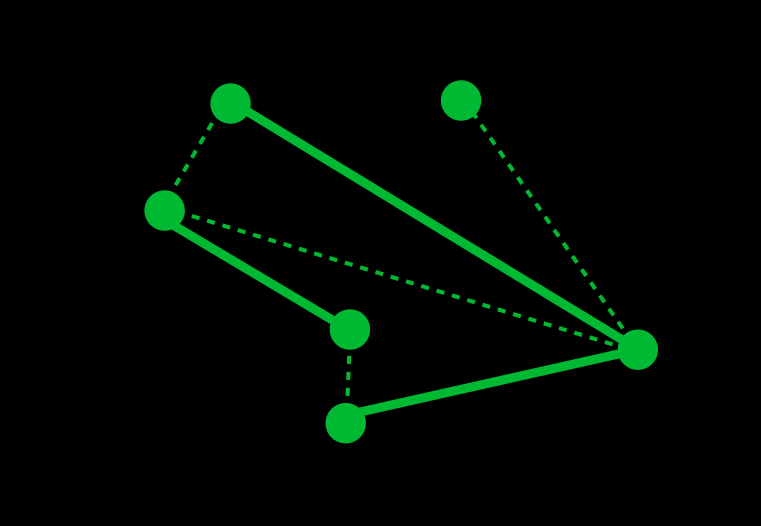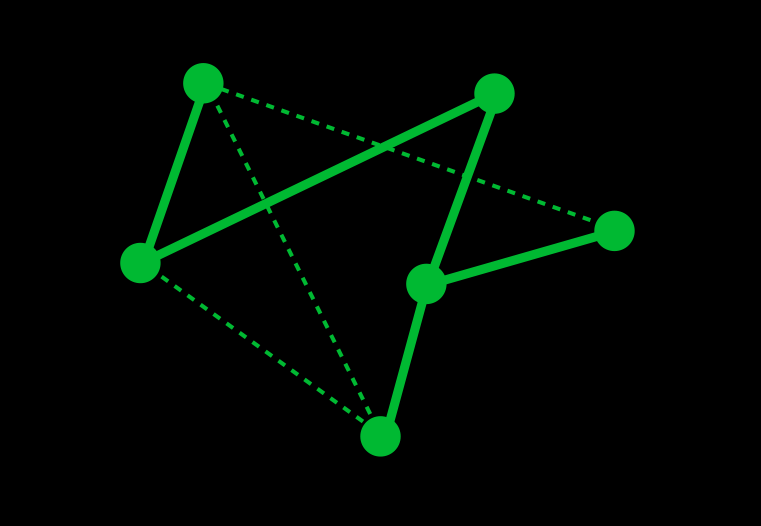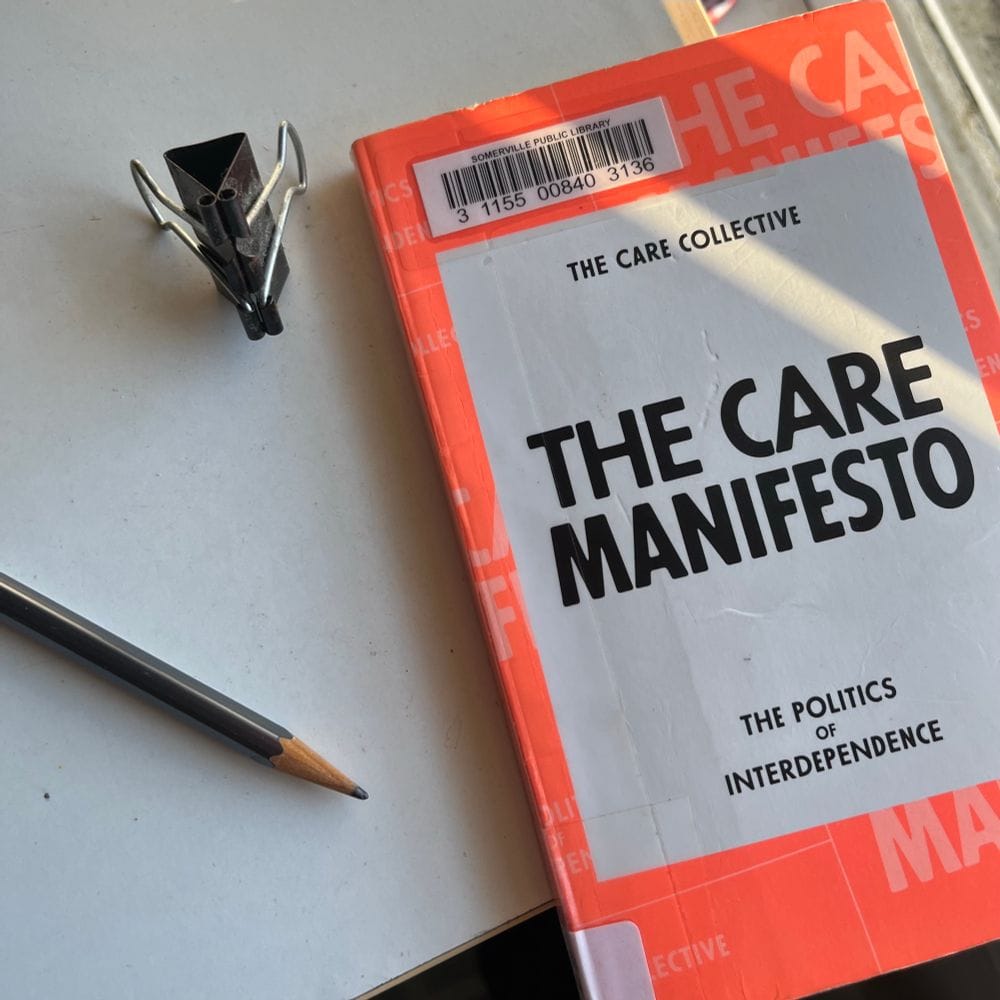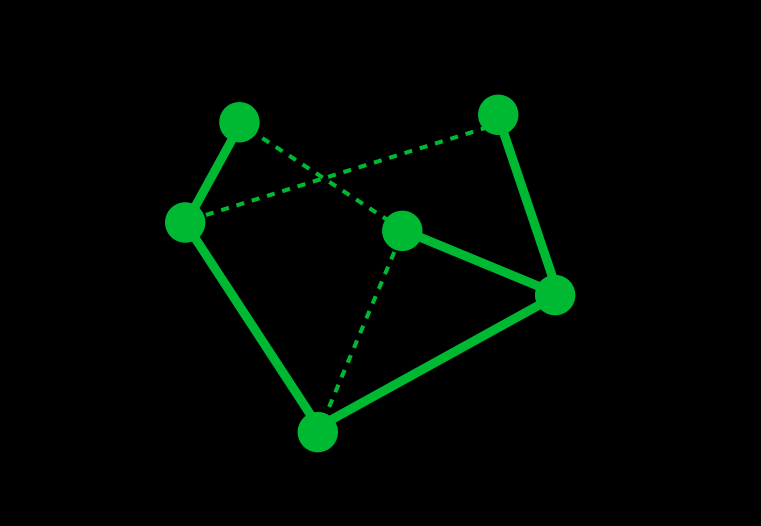Notebook from February
Contains: notes from Maureen N. McLane, Lyn Hejinian, Samuel Delany, Gregory Bateson, and other writers, plus much more
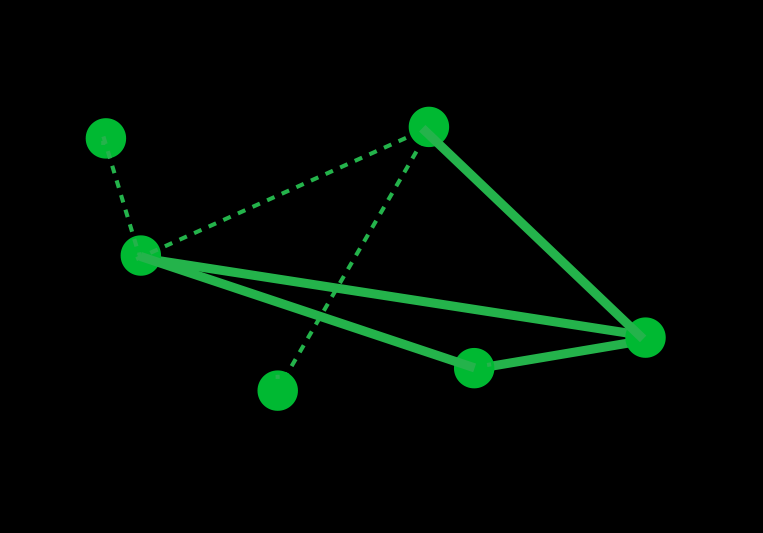
Some fun stuff here: Andrea Long Chu diagnosing the problem of the "far center", Foreign Affairs diagnosing the problem of "competitive authoritarianism", Velimir Khlebnikov on folk speech and pagan spells, Charles Bernstein's list of poets working with the "imploded sentence", Maureen N. McLane's list of recommended readings (one, two) from the back of My Poets, Gregory Bateson's criteria for determining what qualifies as a "mind", a disquieting Internet observation that "all there has ever been is surface," plus... well, lots more.
Oldest to newest:
1. Jim Goldberg's "Coming and Going"
2. Economic and political destabilization
3. Autocrats and market economies
4. The global economy since the 1980s
7. Brian Judge's "Democracy in Default"
9. Subjectivity is allegorical
12. The cultural presence of nationalism
13. Change, in Leslie Scalapino
14. The pleasure of seeing and the phenomenal field
15. Civilization and "the landscape"
17. "True existence" vs "conventional existence"
18. Works of despair (and hope)
20. "Continual conceptual rebellion"
21. Poe and "absorptive fiction"
22. Bernstein on "the addressee"
23. "If only the plot would leave people alone"
25. Nicole Brossard's "A Book"
28. Rae Armantrout's "Mainstream Marginality"
30. Harry Lanz on language's "transparency effect"
31. Sigrid Burckhardt on words and their meanings
32. Poems as recognitions, or not
34. "Song melos" vs "charm melos"
35. "Fabrication" by Imogen Reid
37. "The Authoritarian Personality"
38. Grant Morrison's "The Death Reaper"
39. Achille Mbembe's "On the Postcolony"
40. Upcoming releases from Blank Forms
41. Brendan Joyce's "Value Form"
42. Catherine Weiss' "Big Money Porno Mommy"
43. Jared Pappas-Kelley's "Stalking America"
44. Jared Pappas-Kelley's "Solvent Form: Art and Destruction"
45. The "readable"
47. Information in the poetry of Marianne Moore
48. Marianne Moore and the "multiplicity of things"
49. Marianne Moore's "Marriage"
52. The "aesthetic register" and the pleasure in pattern
53. Nick Piombino; Nicole Brossard
54. The linguistic resistance to common values
55. High art and provincial culture
56. Inadequate language for art and its reception
57. Nicole Brossard on writing
58. Nicole Brossard on the body
59. Body, energy, and language
60. The patriarchal field of language
62. Research, intelligence, and pleasure
63. Wittig's "The Lesbian Body"
65. Andrea Long Chu on the “far center”
66. The word "as"
67. Systems, networks, coherence, unity
69. Camus' abyss
70. "To live means to leave traces"
71. Hanne Darboven
72. Folk speech, pagan spells, and "beyonsense" language
73. Anti-absorptive traditions within twentieth-century poetry
74. Basil Bunting's "Briggflats"
76. Peter Seaton
77. Steve McCaffery's "Panopticon"
78. The performance of nonabsorbable texts
79. “Competitive authoritarianism”
80. "All there has ever been is surface"
81. The "non-family anchored hero"
82. Genre as reading
84. The Koran as fragmentary song
86. Hypersignification / oversignification
88. Hejinian on our current crises
90. David Buukck & Juliana Spahr's "Army of Lovers"
91. Lyrical confession vs formal complexity
92. Signifying and information
93. Fragmented units and syntactic turbulence
94. Inger Christensen, "To Go In"
95. Brecht's doubling of attention
100. The utopian ecstatic
101. Inside ideology, but with a different perspective
102. Consciousness, experience, and poetry
103. Piombino's "combinatorials"
104. Nick Piombino and poetry's functions
105. Nick Piombino's "Boundary of Blur"
106. Stein, Creeley, and attention
107. Grenier's "Phantom Anthems"
109. Ronald Knox's "Enthusiasm"
110. Mystical reluctance
111. T K Oesterreich's "Possession, Demoniacal and Other"
112. The treatment of women's posession
113. Tarantism
114. Tungus shamanism
115. Shamanic seance
116. The global picture of altered consciousness
117. "Marriage" between humans and spirits
119. Barbara Tuchman's "The March of Folly"
121. The shaman's calling
122. Michel Leiris' work on possession
123. Possession and domestic conflict
124. Ichiro Hori's "Folk Religion in Japan"
125. Christianized slave cults and the gods of Africa
128. Voodoo syncretism
129. European shamans
131. Poetry as "privacy overheard"
132. Poems as "invitation to subjectivity"
134. Language, incipience, and subjectivity
135. Art vs seriousness
137. "Affect"
139. Watten's "radical particularity"
141. Morton Feldman's "Crippled Symmetry"
142. Hejinian on Watten
145. G. Spencer-Brown's "Laws of Form"
146. Rene Thom's catastrophe theory
147. When is an aggregate a mind?
148. Cause and effect vs relational difference
150. "Steady state"
152. "Ontological choreography"
154. Complaints as medical ontology
155. The meaning and definiton of disability
156. Foucault's escape from dominant modes of thinking
157. The knowledge in "practices"
158. "Disease is a process in time"
159. Enacting reality
160. Hannah Arendt on poetry and thought
161. Schiller's "the naive" and "the sentimental"
162. Louise Glück on the "hidden world"
163. Daisy Hay's "Young Romantics"
164. Revolution is religious, not political
165. McLane's recommendations, round one
166. Adam Phillips on adolescence
167. Maureen McLane on "corrupting the youth of America"
168. Shelley, poetry, and the imagination
169. McLane on Shelley's longer works
170. McLane's recommendations, round two
171. Lisa Robertson, "The Weather"
172. Olena Kalytiak Davis, "The Lyric 'I' Drives to Pick Up Her Children from School"
173. Éric Chevillard
